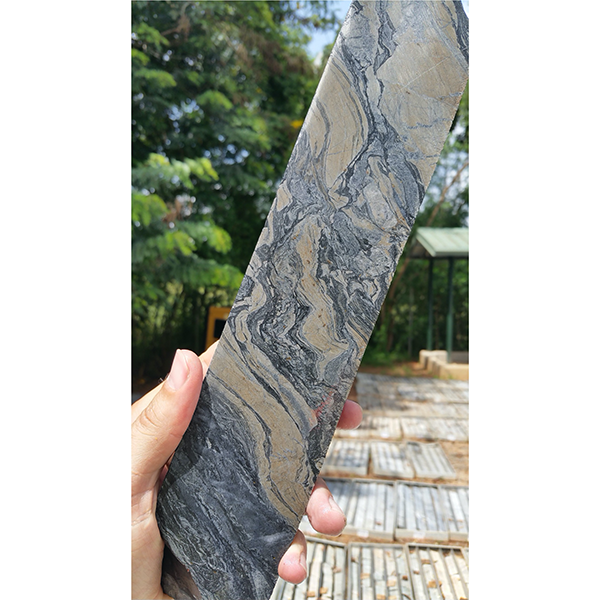

Overview and main aims
Poor outcrop and mixed drilling results in complex geology cause multiple problems for exploration and mining geologists. This two half days course is for geologists who are using drill results in combination with other datasets to make decisions on exploration strategy, drill targeting, resource definition and mining. The intent is to encourage geologists, at every level of
experience, to use their full skill sets to make the best possible decisions from drilling results.
Who should attend?
The course is suitable for geologists of any experience level, working in mineral systems with poor outcrop, complex structure, geophysics and geochemistry, including minerals explorers, mine geologists, researchers and students. It is ideally suited for geologists using drill core and related data as a major component of their exploration, research or mining geology programs. Although we will be using a hydrothermal Au system as the key practical component, this course is also suitable for geologists dealing with deformed and overprinted Ni- and PGE-bearing orthomagmatic or sedimentary systems, and similarly, metamorphosed/remobilised VHMS systems.
Presenters
Nick Oliver (PhD, Director HCO Associates consultants, Adjunct/Honorary Professor at JCU/EGRU and UQ/SMI (Sustainable Minerals Institute) nickoliver@hcovglobal.com
Prerequisite
Participants will use the following provided datasets: core photography, downhole geochemical data, geophysical/rock properties data, and structural data. A good working knowledge of Excel is required; prior experience with Leapfrog, ioGAS and stereographic projection software will be benecial, but is not essential. Instructions for accessing this software, the core photography data package, and the relevant datasets, will be made available upon registration.
Course content
The main focus of the course is on the use of drilling-derived data, including core photography, down-hole geochemical data, logging data, structural data, and additional data derived from tools such as spectral tools or scans, magnetic susceptibility etc.
Drill core do’s and don’ts: Drill core logging fundamentals haven’t changed in over 50 years. 3D model building and computing in geosciences have changed, radically. Where does that leave us now?
Understanding core logging: Tips for geologists of all experience levels dealing with drill logging and drill logs, Dealing with scale, time management, balance between observations and measurements, and the dreaded drill-log template.
Element mobility: the key to just about everything. Scales,
principles, thinking about element mobility with rock examples. Practical exercise on drill core photographs and simple
geochemical data
Extracting Lithogeochemistry: within deformed rock packages. Using geochemistry to assist with logging of protoliths, alteration and veins. Getting your Excel spreadsheet to sing about rocks vs alteration vs veins and metals. Introduction to methods of lithogeochemical classification in ioGAS.
Dealing with deformation: the poly-deformation challenge, where to start, what to do, how to simplify, how to move forward, how to turn jumbled logs and random structural measurements into actual ingredients in a 3D model.
Dealing with alteration: the similar poly-alteration challenge, where to start, what to do, how to simplify, how to move forward, how to turn jumbled logs and random alteration observations into ore-finding vectors by combining your geochemistry with core observations.
Fusing geochemistry with structural geology/geophysics: this difficult area is a major focus of the consulting work of the course presenter, and you will learn new methods to deal with this set of problems.
Drill hole logging with digital data: Realistic practical solutions are now being offered by service providers to extract multiple datasets by core scanning, generating a wave of new datasets.
Cost:
Professionals and researchers $500.00 + GST, CET members $450.00 + GST, Students $250.00 + GST
Cancellations will incur a ($40) administration fee up until one week before the course commencement date & time, but you can transfer your registration to someone else from your group by notifying us, at no cost. After that date, no refunds will be issued.
Days and Times: Thursday the 4th and Friday the 5th of July 2024, 2pm to 5:30pm (Perth time - UTC+8)